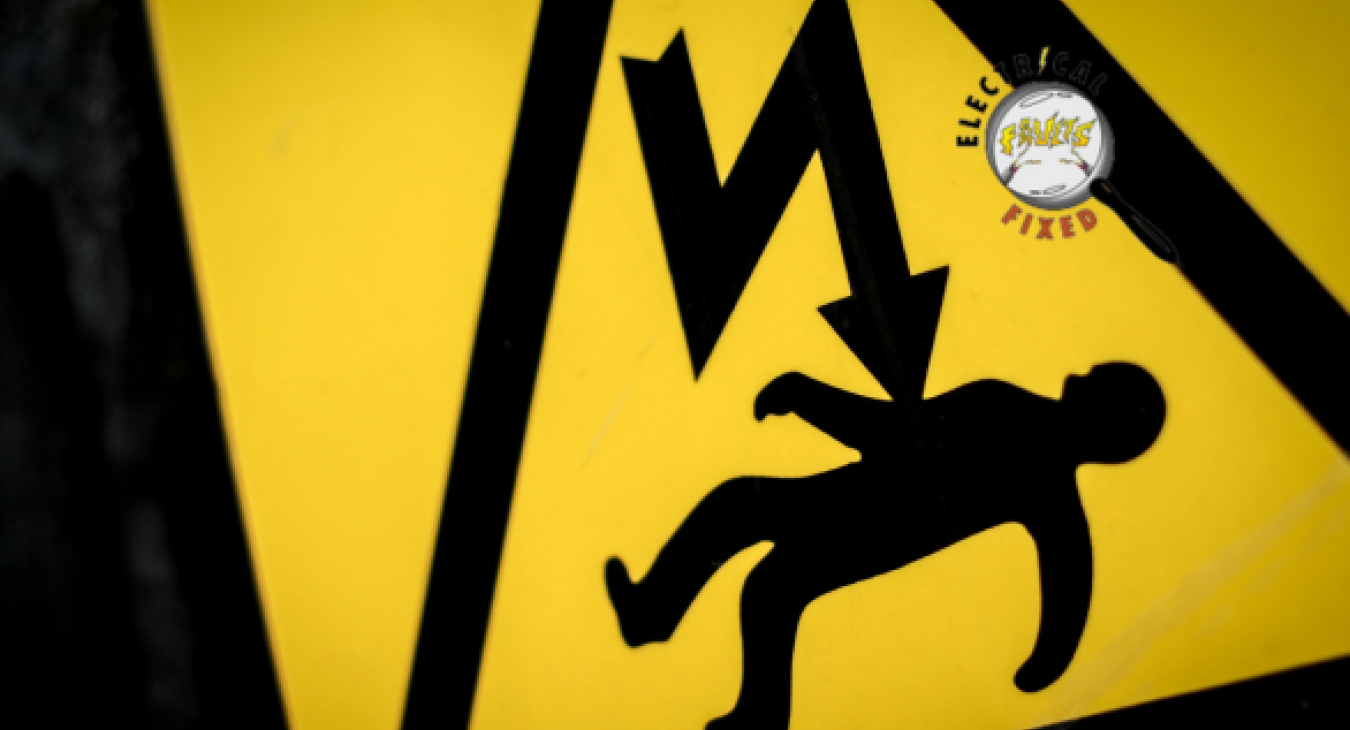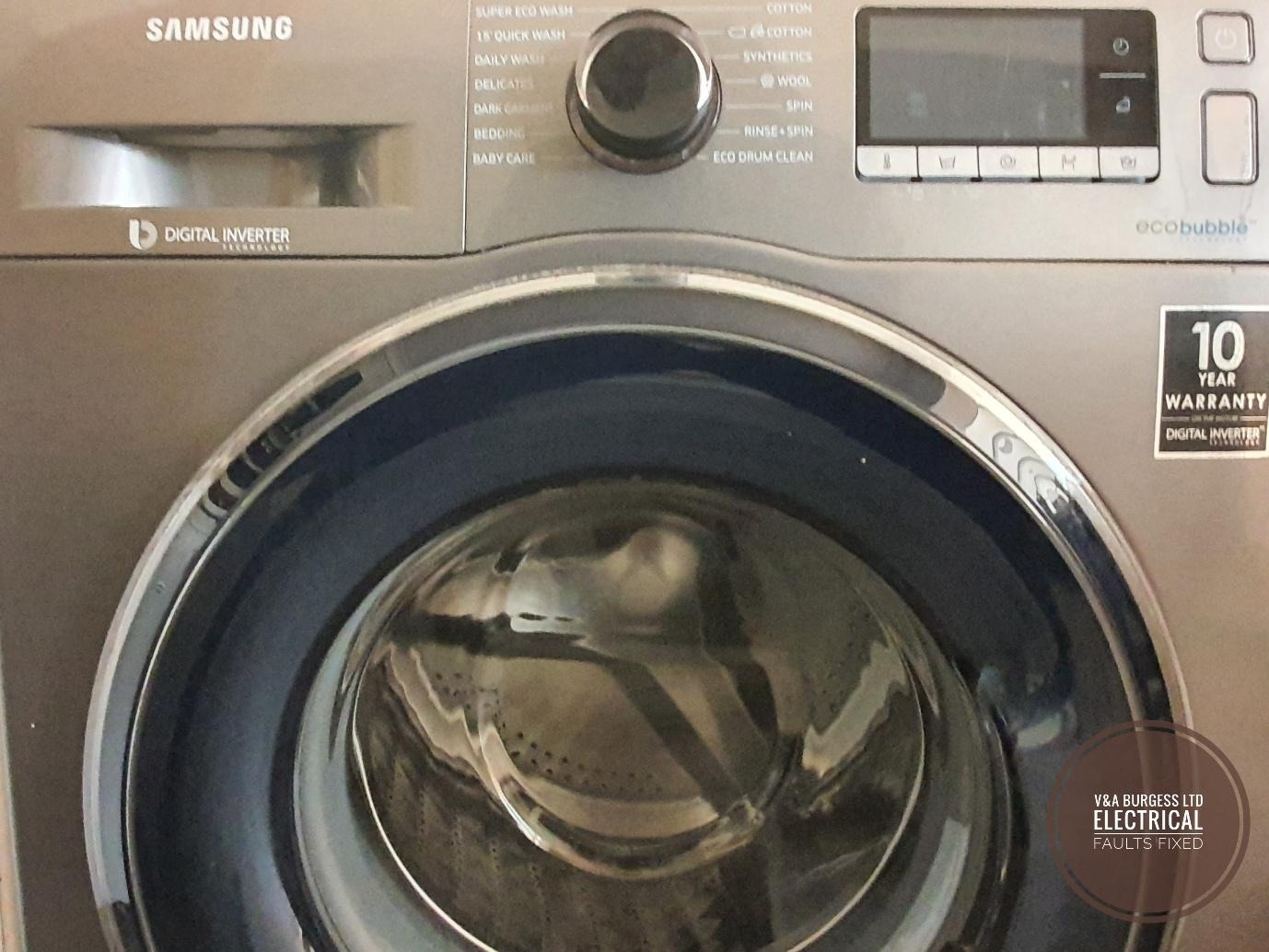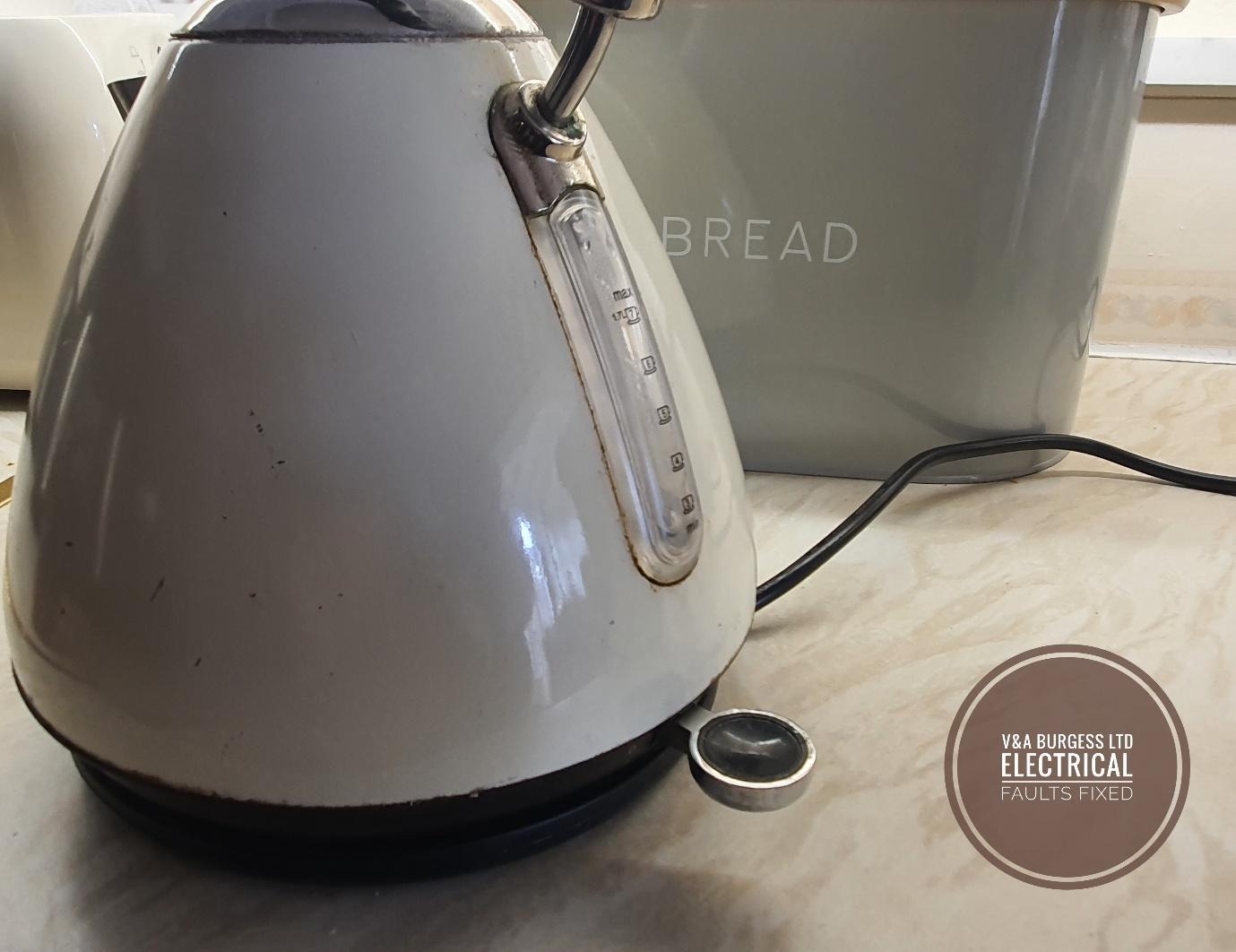15 Things You Should Not Plug Into an Extension Strip
Power Strips, Extension Leads and Extension Reels are common in every home but did you know these have a maximum safe rating?
Table of Contents
- Washing Machine / Washer
- Dryer / Tumble Dryer
- Dishwasher
- Fixed Oven
- Air Fryers / Frying Equipment
- Hot Air Heater
- Toaster (and Toaster Ovens)
- Kettle
- Hair Tongs, Hair Dryer, Curling Iron
- Portable Heating Equipment
- Slow Cooker
- Halogen Ovens
- Coffee Makers
- Microwaves
- Car Charging Equipment
- Lets Answer Some Questions...
- TOP SAFETY TIPS
There are a number of items that should not be plugged into one of these devices in order to avoid electrical hazards and safety risks. This is a list of the 15 most common things that should not be plugged into an extension cord.
You can find a list of household appliances, their ratings and use this to determine what can and cannot be plugged in to an extension lead in our article.
Back to top1) Washing Machine / Washer
A Washing machine is a high powered appliance that contains a heating element to heat up the water inside. This heating element is the item that presents the majority of the problem. A heating element in any appliance uses a lot of power. Extension cords are not suitable for high powered appliances for a variety of reasons but mainly because each cord, strip or reel will have a maximum safe power and this can easily be exceeded by a washing machine appliance.
Back to top
2) Dryer / Tumble Dryer
Just like a washing machine, these appliances also contain a heating element. The issue with a clothes dryer is that they tend to run long cycles and draw their power over an extended period increasing the risk of a fire hazard when used with an extension lead or power strip.
Back to top3) Dishwasher
Another appliance containing a heating element that requires long periods of demand. Where too much power is required from an extension reel, strip or block, an electrical fire can ensue! It’s definitely worth asking your electrician if you can have more plug sockets or an additional wall outlet added if you need to power these heavy, power hungry appliances. (Power, Voltage, Current what does it all mean?)
Back to top4) Fixed Oven
A fixed electrical oven should ideally have its own power supply. As a matter of fact, in UK Wiring regulations it is suggested that loads exceeding 2 Kilowatts should be placed on their own circuit when it comes to fixed cooking equipment such as hobs, cookers and ovens. Constant power draw through an extension lead can result in damage to the extension lead, wall socket and possibly even the appliance itself.
Back to top5) Air Fryers / Frying Equipment
These appliances contain a heating element and as such, it is often unsafe to use these with an extension reel, cord or power strip. Whilst extension leads are a convenient solution to a lack of proper socket outlets, they are not a safe solution. This is especially true where high-powered appliances are used over a longer period of time or where multiple items are plugged in as a permanent solution.
Back to top6) Hot Air Heater
The the safety risk is once again, a heating element. Electrical heating elements use a huge amount of energy. These power-hungry devices are likely to be used for several hours at a time causing any weak links in electrical connections to become dangerous. An extension lead is an unsuitable solution to directing power to hot air heaters and other high-power appliances. Check here if extension cords are safe to use.
Back to top7) Toaster (and Toaster Ovens)
Toasters are not a sensible option for extension leads. Whilst on their own, they may not exceed the limit of some extension leads, they are often used in conjunction with other kitchen appliances which can result in a seriously overloaded power strip. Heating elements in electrical appliances demand significant power. You can check to see if an appliance is high amperage by looking at the data badge on each appliance. This can then be compared to the rating of the extension lead to see if overload is likely.
Back to top8) Kettle
A typical UK kettle will draw around 3 kilowatts or about 13 amps. This is the maximum rating of extension leads and whilst it may not overload the single power strip, when other equipment is plugged in to the extension cord that is already sat at maximum capacity, the current draw will exceed the safe maximum use very quickly. A kettle is often used several times a day and whilst boiling times may vary, it is still not sensible to use such high wattage appliances with an extension power cord device.
Back to top9) Hair Tongs, Hair Dryer, Curling Iron
These devices reach high temperatures very quickly in order to perform their functions effectively. They are not only a safety hazard because of their high temperature but these hair tools can also overload most indoor power strips when used in conjunction with extension leads and other appliances. Each extension leads should have overload protection but this will not necessarily stop a fire!
Back to top10) Portable Heating Equipment
Portable heating equipment can cause dangerous overheating of extension cords very quickly. Most portable heating equipment is rated at 2000 - 3000 watts which is the limit for many extension cords. Heating equipment uses a lot of electricity in a short space of time and can generate heat in cabling, plugs and wall sockets. If you require electrical heating equipment it is strongly advised to only use such equipment direct into socket outlets / plug sockets rather than through an extension cord. As with any high-wattage device, check the rating of the device and compare to the rating of the extension lead.
Back to top11) Slow Cooker
Slow Cookers use electricity over a long period of time and when used in conjunction with other electrical appliances, they are likely to lead to extension leads overload. The number of devices does not often matter when it comes to electrical overload but rather the power rating of each device. High-wattage devices are the likely culprits when it comes to blown fuses, tripped breakers and electrical fires.
Back to top12) Halogen Ovens
These devices were common a number of years ago but not that common any more. These devices were typically high powered and were also likely to be used for extended periods to cook foods. As with any electrical appliance that contains some form of heating element, its a good idea to compare ratings on the data badge of the appliance with the extension lead to ensure that overload won't occur.
Back to top13) Coffee Makers
Coffee makers are another kitchen appliance that demands a lot of power. Don't be fooled by their appearance, these small devices can draw as much power as large appliances and you should not use an extension cord with such appliances. Whilst extension leads are a convenient way to get an electrical supply where you need it, they are no substitution for proper socket outlets installed by a qualified electrician.
Back to top14) Microwaves
A Microwave Oven is another high powered appliances that should be connected directly to a wall socket outlet rather than via an extension reel, cord or power strip. These devices are likely to overload an extension lead when connected with other equipment and, as such, should only be used in a dedicated socket outlet.
Back to top15) Car Charging Equipment
Please DON'T use extension leads to charge your car. Specialist car charging leads are fine of course but not the typical extension reels we use for the garden party. Car charging equipment is usually very high powered and most car chargers should be hard wired direct to your electrical panel, consumer unit or fuse box. Car charging equipment generally requires its own dedicated electrical circuit and should be installed by a professional.
Back to top16) Lets Answer Some Questions...
16.0.1) Can you use an extension cord outside?
Yes in good conditions. Do not use extension cords outside in the wet weather or in wet areas. Always consult the manufacturer’s instructions when using electrical equipment and do not overload the strip, reel or lead.
To all those ambitious DIYers who think an extension lead is a suitable power supply for a garden shed, stop! Using an extension lead to power a shed is not generally safe and introduces various risks such as electrical shock, fire and tripping electrical supply in your home. Oh, and covering an extension lead with a plastic bag does NOT make it waterproof.
Properly installed outdoor electrical sockets are the best way to have electrical supplies outside.
16.0.2) Can you 'Daisy Chain' extension leads?
No. Extension leads should not be daisy chained. Here is why:
- Plugged-in-devices can overload daisy chained extension leads with the first lead becoming dangerously overloaded.
- Each electrical circuit has a maximum safe resistance which can be exceeded with multiple extension leads.
- Voltage drop can occur when using multiple extension leads and reels meaning equipment may not work safely or correctly.
Every extension lead is another potential weak link in the electrical circuit which can lead to overheated connections and fire risk.
Back to top17) TOP SAFETY TIPS
- Throw out or recycle damaged extension leads
- Check the extension lead calculator for safe loads and limits at Electrical Safety First
- Have electrical equipment and additional outlets installed by a professional
- If it doesn’t feel or look safe, it probably isn’t! Consult a professional if in doubt.
Whilst extension leads can be used for many appliances at the same time, it is important to check the power rating of each appliance to ensure that over load is not likely to occur. Be sensible, consult a professional electrician if you are unsure of what is safe to connect to an extension cord. Do not use extension cords to power equipment permanently and if you require additional electrical outlets for your appliances, have them installed by a professional; I promise, its cheaper than a house fire!
Back to top


